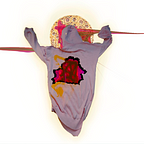What’s wrong with the cancel culture and trigger warning policy?
This year can be called a year of cleansing. Not only for the desire of finally getting rid of the Coronavirus, mass protests, and illnesses all over the world but because of the washing off the ideas and language that may trigger a trauma.
You may ask, who decides what might be traumatizing and what might not be traumatizing for the people of developed countries this year? Now it seems like every slip of the tongue, every dull joke, or even the opinion, that goes against the opinion of left-liberal views can be and has to be brutally punished by the society. Let’s take a look at this social phenomenon of cancel culture and trigger warnings from the inside and try to understand why those will not save the world from violence.
How private space became a public one and why it’s important
Public spaces have always been the places for a certain style of behavior: one couldn’t behaving inappropriately there, but in private space could do anything one wants to do. It’s been like this for ages, now we all coming to the point where the rules of public spaces work perfectly in private ones.
Certainly, it’s a good tendency because the people of power can eventually start behaving respectfully towards the less powerful ones and let them speak up. The situation is still not perfect, even though the case of Harvey Weinstein and the following ones have moved it from a deadlock, there are still lots of unsolved crimes and unspoken stories about unacceptable behavior to be told about.
Many say that the movement of Cancel culture can hurt the innocent people who didn’t do anything wrong. Of course, they can because of the social understanding of good and bad changing far more quickly than it is reflected by the law. And one who’s been doing the same things for years can’t get why it’s prohibited now.
Why media is a powerful tool to Cancel culture
Media is a crucial factor in spreading information about the crimes one has committed. Due to the speed of the spreading news in the media and the context that can be changed, it is easy to bring to the surface every single wrong thought of your opponent. The most astonishing thing about that is that personal social media is also accepted as public space.
This is the game-changing point, where we realize that what a person posts or reposts is considered to be pronounced = supported by this person. Now it’s a great mistake not to explain to the public space any ideas or texts that can be accepted as incorrect and condemnable. In 2020 one should choose words/ ideas carefully not to get canceled.
Here the society is taking the role of a polizei, who decides what is appropriate = good and what’s not. The space in this case is separated into two blocks of ideas: good and bad, right and wrong, white and black, but now by the law, by the influencers.
The place for a dialogue in 2020
Art has always been an instrument to reflect social & political changes and a place where people could do the things they would be punished for in a real life. Educational institutions also have always been the places to discuss loudly the pains of the society, its vulnerable points.
Jeannie Suk who wrote the article in The New Yorker about the students of her fellow professor who ask him not to study rape law, because the speaking of it hurts the feelings of the traumatized students. Later, she was canceled from many public discussions for had having raised the topic of over-sensitive students and her concerns about widespread trigger warnings.
It’s not an isolated event when even raising the topics of violence and rape are recognized as supporting it. The intention to discuss sensitive issues is recognized as something that is not consistent with being accepted by society. It’s very interesting because Cancel culture is built on revealing traumatizing things that are happening all over the world. And now it is a great concern for many arts and educational workers that they can be silenced by Cancel culture for their attempts to reveal sensitive issues of the social changes.
On July 7, 2020, in Harper’s Magazine, there was published an open letter signed by over 200 artists and writers who say that modern social institutions are failing the right for freedom of speech and freedom of thought. It is a significant move to raise such a question in public space this year because as we mentioned before, the desire for dialogue can be brutally punished by the Cancel culture. Maybe Harper’s Magazine had to put a trigger warning before publishing it online?
Last words
What we have now in western society is an over-sensitive generation of free people, who are trying to avoid being canceled and triggered by discussing, seeing, and feeling things. It is a matter of great concern how soon society will develop the mechanisms of resolving such things as how to speak about sensitive issues preserving the freedom of speech and ideas at the same time; how to speak about these problems with the least damage for the people who suffered; and how to develop defensive mechanisms for the information without any trigger warnings if there is a tendency to put it everywhere? We will see it soon.
